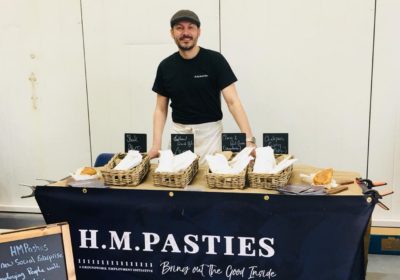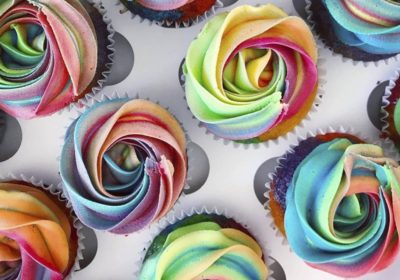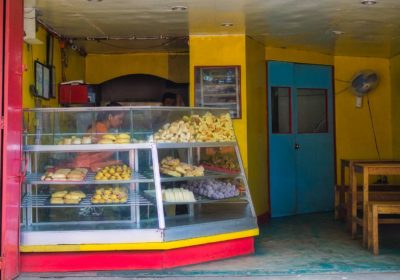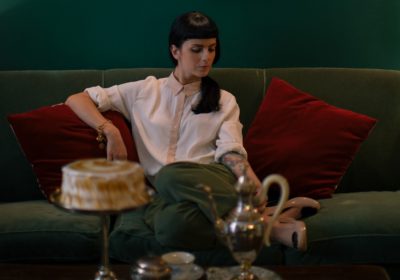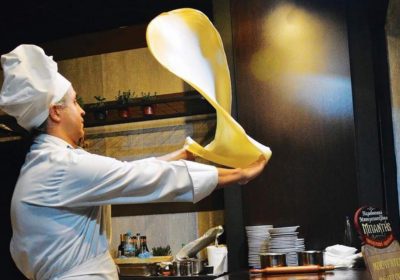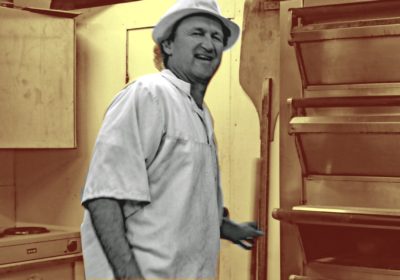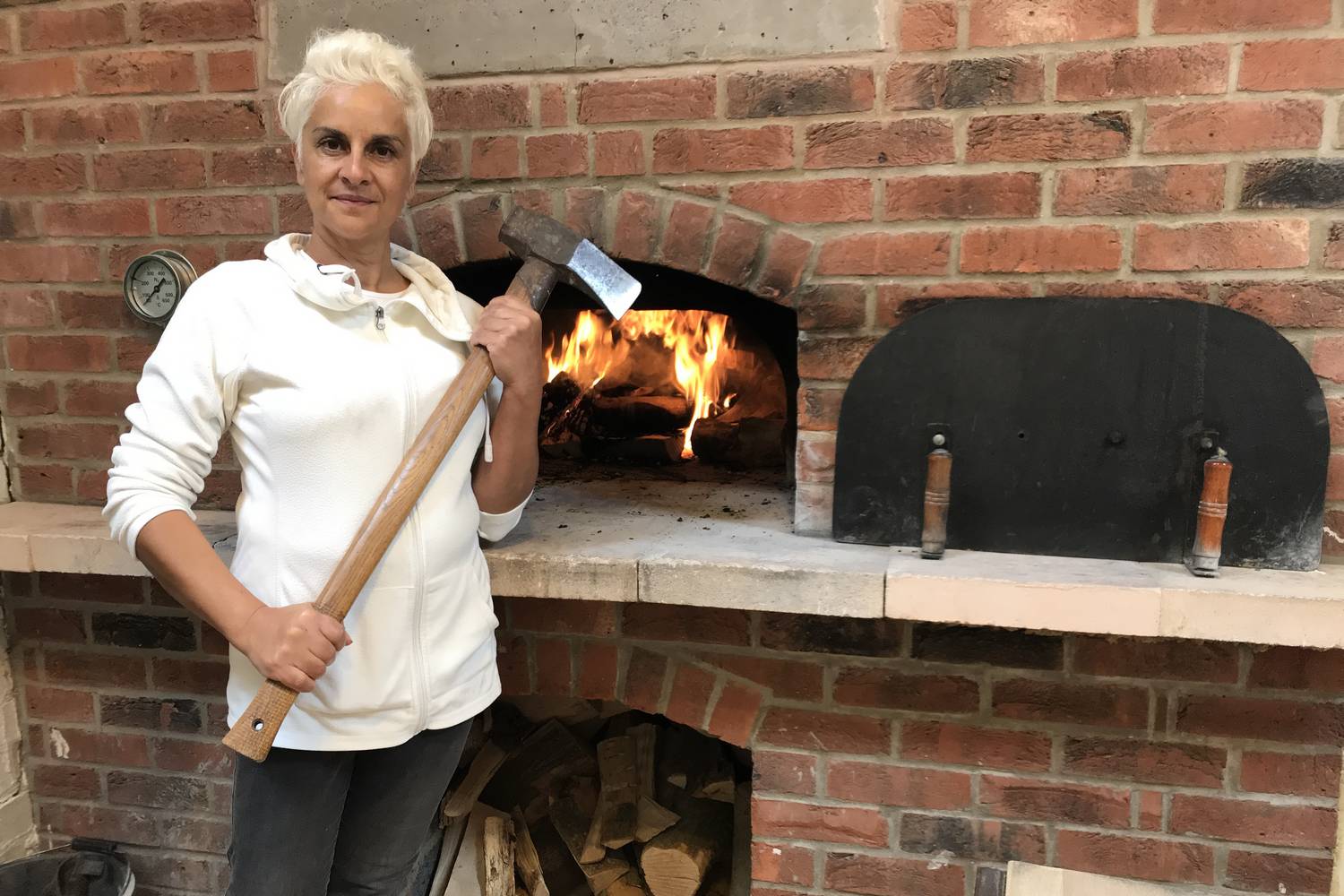
How many bakers found themselves leaving another life behind to be, quite accidentally consumed by bread? While it’s not quite the profession you sleepwalk into, for many – including Greenfield Bakers’ solo baker, Sonya Hundal – the intent to become a professional baker wasn’t as strong as it’s somewhat mysterious lure. Mastering dough, especially the naturally fermented kind requires a certain temperament, containing no little patience, curiosity and a healthy attitude towards the failures that make every success taste sweeter. Hundal’s approach to running her wood-fired, rural bakery in Lincolnshire shows all of these attributes and more.
In her ‘A Baker’s Life’ interview, Hundal name checks some of the baking influencers that helped her discover her craft, pays tribute to her long-suffering oven and remembers a rye ginger cake that she’d have stolen more of if she’d had more or bigger pockets.
What was the earliest bake that you remember?
I am a self-taught baker who has always had an interest in food provenance and cooking, but had no inclination towards making either bread or cakes. We had a bread machine in the house, which slowly disintegrated from daily use and I started making Chelsea buns and fougasse by hand. My early loaves were not great, so I stuck with making rolls and fougasse. Still making the fougasse – tastes even better from a wood-fired oven.
How did you learn to bake?
I went on a weekend course with Paul Merry of Panary in Dorset in 2007, mainly because he has a wood-fired oven and that was it. However, Paul’s attention to detail and gentle instruction have had a lasting impact on how I’ve developed my baking skills. When I started the business, few online resources were available so the primary sources for building my knowledge came from books. Jeffrey Hamelman’s Bread, Dan Lepard’s The Handmade Loaf and Artisan Baking by Maggie Glezer were, and still are, great sources of technical information and inspiration.
What do you feel you still have to learn?
There is a whole other world of working with heritage grains and wholegrains as well as other sourdough fermentation methods I would like to explore. Perhaps it’s also time for a foray into sweet buns and enriched doughs.
What or who is the biggest inspiration on your baking life?
The network of bakers that now exists on Twitter and Instagram. When you live in the middle of nowhere, the willingness of other bakers to share what they are doing and to engage in conversations about their craft is invaluable. Whenever I meet bakers, their ability to ask ‘obvious’ questions and to be honest about baking being a vast area knowledge (where no-one knows it all), is refreshing.
If you could only bake one thing for the rest of your life, what would it be?
That would not be my life! I wouldn’t be able to resist adding other ingredients or working with a dough in a different way.
If you could only eat one thing made by another baker for the rest of your life, what would it be?
Dawn Woodward’s (Evelyn’s Crackers) rye gingerbread cake made at the UK Grain Lab 2018. I ate three pieces and thought about packing more into my coat pockets. Same response to the sourdough wholemeal loaf by Scotland the Bread.
What’s the best baking advice you’ve ever received?
Don’t make your loaves look the ones in the supermarket – from a friend. I couldn’t and she was right.
I work on my own, so when people come to work with me or I get to work with others it’s brilliant.
What has been your biggest baking failure and what counts as your greatest success?
I mistakenly made a batch of ciabatta dough with three times the quantity of water and attempted to correct it by adding flour. I’d already added the overnight biga and couldn’t start from scratch. I harvested a portion of the slop and worked with that, leaving the rest in a dough tub to deal with later. After two days fermentation it was still going strong and the batter-like dough was trying to escape the tub. It ended up in a bin bag and I was terrified of being fined for disposing something that looked like a decomposing human body in a sack.
Way more successful was baking in a friend’s Horno de Lena (wood-fired oven) in Spain. They eventually explained it had really only been built for decoration rather than actual baking. We made some amazing pizzas after sawing down peels to fit the oven.
Where’s the perfect place to bake?
Anywhere with good company. I work on my own, so when people come to work with me or I get to work with others it’s brilliant.
What is the one piece of equipment that you couldn’t bake without?
My very accommodating oven. It’s been very tolerant of my louche attitude towards firing and has corrected my bad habits over the years.
What book has been the biggest influence on you or that you most recommend to others?
The one that started me on the bread journey is not a bread book – Not on the Label by Felicity Lawrence. I would also recommend Slow Dough, Real Bread by Chris Young and the bakers of the Real Bread Campaign. It’s a celebration of the variety and rise of real bread and two of my recipes are in it! Richard Bertinet and Emmanuel Hadjiandreou are also the two I most recommend to home-bakers.
Sweet or savoury?
I eat everything. Why what have you got?
Coffee or tea?
Coffee. Always grind the beans. Trained my builder to grind the beans and now he has his own grinder…
Sonya Hundal has been announced as one of twenty one Real Bread Ambassadors by Sustain’s Real Bread Campaign.


